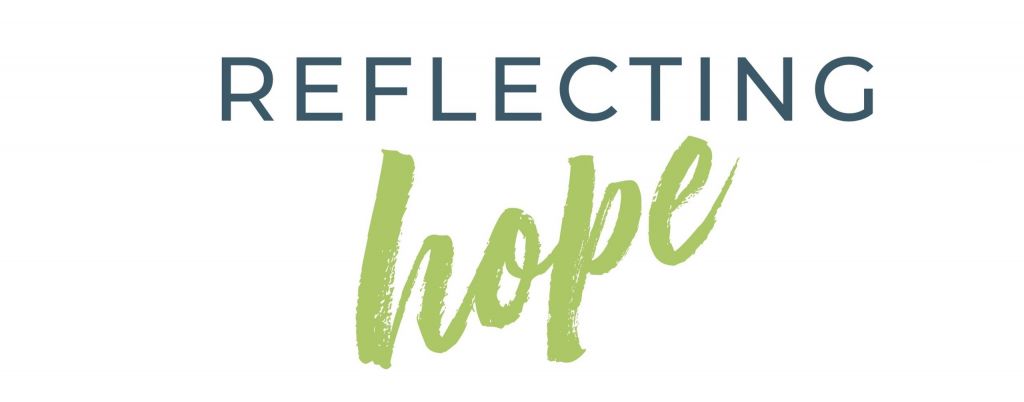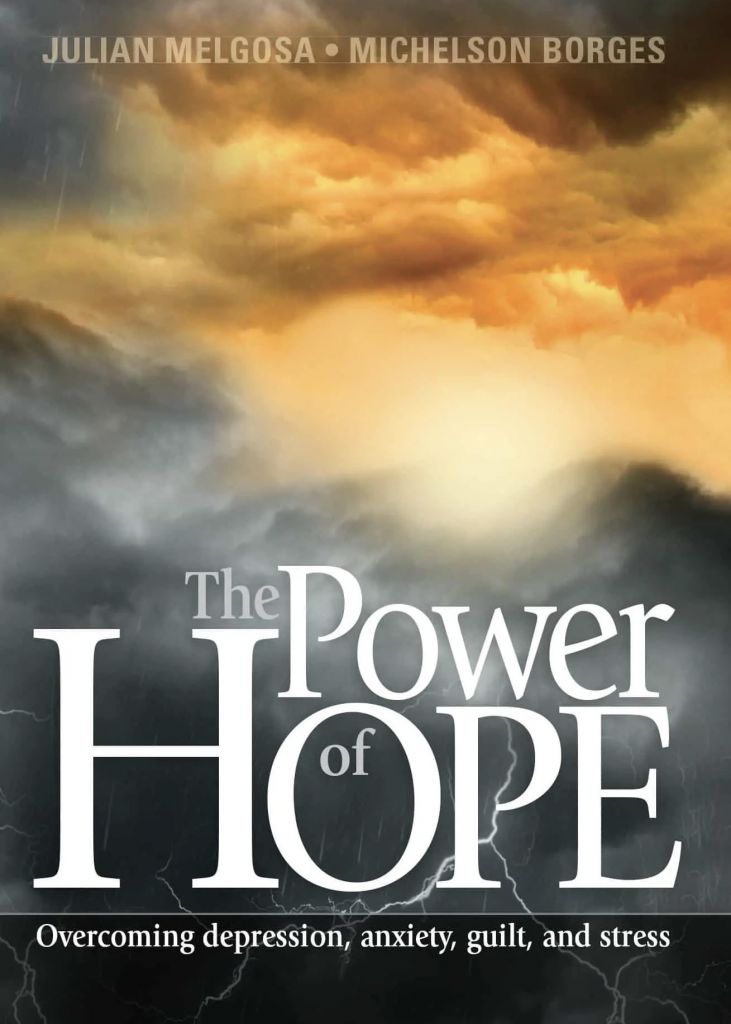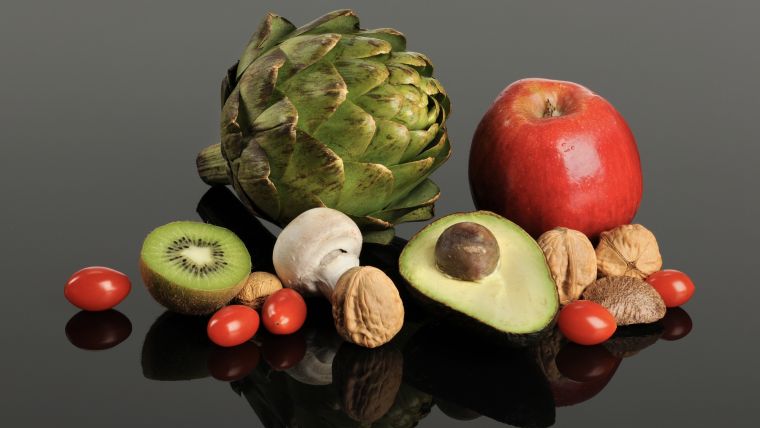Do you remember Paul from a previous article? He was the husband who would arrive home upset with his supervisor and never had time for his wife and kids. His big problem is stress. Actually, this is an increasingly common problem in the lives of millions of people.
Stress is part of our daily life. Time and work pressures, problems in relationships, noise, pollution, finances, and insecurity are only a few causes of stress.

The consequences of stress affect our body, mind, and emotions. Stress should be monitored, because its effects can cause damage and can even lead to fatality. On the other hand, in the right quantity, stress is a good source of motivation. Stress mechanisms release energy so the individual can face almost any situation.
Some even classify it like this: stress—physiological condition, necessary and useful in life and survival; distress—condition of imbalance, prejudicial to health.
Eveline, a tailor, provides an example. She knows that Friday is the day she delivers her sewing orders, and she works untiringly on Thursday. In fact, on Thursday she produces more than on Tuesday and Wednesday together. She concentrates better and works more quickly and with greater precision—she even forgets to eat! On Fridays, she delivers the clothing on time and relaxes with satisfaction. Stress was useful on this occasion.
The causes of depression vary a great deal. At times they are difficult to identify. This is not a perfect But she cannot abuse this energy constantly. The worst effects of stress emerge when situations like this one become extended or exaggerated. This is the case of Paul, who had already surpassed his defense barrier. When an individual oversteps the barrier of adequate stress, the body consequently lowers the resistance of the immunological system that protects us against infections. We then become more prone to acquiring all types of diseases, including colds. Now imagine stress aligned with depression. What could this pair be capable of doing? Could this have been the trigger for Carlos’s cancer?

Physical and psychological effects of stress
Stress has an influence on various diseases, and the state of imbalance caused by bad stress weakens the mind and the body to face these situations. Thoughts, emotions, and behavior also feel the effects of excessive stress:

Suffering a great disappointment, having excessive worry, or feeling stressed does not necessarily mean one has depression. However, these emotional alterations can be the beginning of depression, and it is necessary to be attentive so these feelings do not continue too long.
– Thought: difficulty thinking correctly, faulty memory, lack of concentration, mistaken concepts, et cetera.
– Emotions: constant tension, fear of contracting some type of disease, impatience and irritability, insecurity, et cetera.
– Behaviour: a decline in verbal flow, a risk of the use of dangerous substances, habitual absence from school and from work, difficulty sleeping, relationship problems, etc.
Permanent stress: Great danger
Our friend Paul had not yet developed a physical disease; however, he was on the path toward doing so. He urgently needed to change his lifestyle, or he and his family would pay a high price. When work production is maintained at the cost of high stress and great tension, efficiency is lost. And when the duration of high stress is prolonged, the risk for serious disorders in the body and mind increases.
How to prevent stress
A wise use of time prevents stress, and we need to know how to manage it. Time is one of the assets that everyone receives in the same measure, and how we feel depends on how we spend it. How can a person use time in a balanced manner?
Be realistic
Perhaps you recognize the saying, “Don’t bite off more than you can chew.” It advises us against trying to do too many things at once. We have a fundamental need to set goals that can be carried out in the time available.

Establish priorities
Knowing your priorities makes it easier to concentrate on the tasks that are most important. This has a lot to do with your values and your beliefs. What position does money occupy in your life? What is the importance of your work? How do you consider your family relationships? Do you regard helping other people as worthwhile? Do you demonstrate religious values in your life? Depending on your answers, you will designate adequate time for each aspect of your life.
Diversify your tasks
Focusing time and energy on one activity for too long can cause it to become boring—or an obsession. Work is important for you to receive an income and personal satisfaction. A couple or family relationship is also an ingredient of good balance. Leisure offers much satisfaction and should be a complement to regular work; therefore, it does good to alternate physical work with calm leisure activities or sedentary work with active leisure pursuits.
Be organised
Prepare a list of things you need to do during the day and the week. Focus on them, and do not get distracted by other things that take your attention from your desired objectives. If you feel extreme pressure, decrease some of the activities. If you think that the tasks are too few, experiment by adding something more.
Live a simple life
Leisure activities that absorb a great deal of time, such as expensive vacations and extravagant sports, can become causes of stress in themselves. These examples involve not only large amounts of money but also the use of time and energy for them to be implemented. Try simple activities such as an outing in the open air or reading a good book. Learn to be happy with simple things that provide true joy.
How to overcome stress
The treatment for stress has to be complete and holistic. It should encompass all social aspects of one’s life (work, family, friends, etc.). In periods of a stress crisis, choose the amount of work that can reasonably be carried out, and do not be concerned about anything else. Give attention to your relationships, forget about yourself, seek to be pleasant, and offer your friendship to others. Help someone, be friendly, and make a contribution to humanity. The reaction of others will help you.
Overcoming stress involves all the dimensions of existence: physical, mental, and spiritual. Consider the following guidance:
Thought plan
The most efficient therapy in stress cases is called cognitive psychotherapy, which consists of teaching an individual to control his or her thoughts instead of allowing the thoughts to dominate the individual. How can this be done? Practice these exercises repeatedly:
– Prohibit negative thoughts.
– Choose topics that are positive or neutral. For example, think about pleasant experiences from the past; people whom you admire; fun friends; or episodes from some book or a special film. Consider these things while you do your routine tasks or substitute them for the thoughts that cause concern.
– Have constructive concerns as a motivation. To solve the problems that provoke stress, it is necessary to think about alternatives, other possibilities, and ways to overcome a difficulty, instead of immersing oneself in destructive, repetitive, and obsessive worry.
– Discard irrational beliefs. People sometimes have negative ideas and beliefs regarding themselves and the environment in which they live. These negative thought patterns increase stress.
For example, they may think: “I am good for nothing”; “No one likes my company”; “Happiness comes along by chance, and my time has not come along yet”; or “My supervisor hates me and only wants to make my life difficult.” These ideas must be rejected. And if someone is not able to do this alone, he or she should seek the help of a psychotherapist to talk about this matter and free themselves from these irrational beliefs.

Physical plan
Physical exercise is the best medication against stress. If your health allows, do vigorous physical exercise (running, swimming, team sports), or walk fast every day.
Relaxing is another good solution: dedicate half an hour daily to rest (not to sleep); tense up the muscles one by one, alternating with moments of complete relaxation after each tightening of the muscle.
Occasional deep breathing is also very useful to fight stress: take a deep breath, expanding the abdomen (not the lungs), and hold the air for a few seconds before exhaling.
Spiritual plan
Mental and emotional peace are incompatible with stress. A calm conscience can be obtained through faith and prayer.
The Lord Jesus, after an exhausting day of sermons, walking, and pressure from the crowd, said to His disciples: “Come with me by yourselves to a quiet place and get some rest” (Mark 6:31). His method included getting up in the early morning hours, when it was still dark, and going to a quiet place to pray (Mark 1:35).
Spend time studying the Bible—at least fifteen to twenty minutes, and end with a prayer to God. Thank Him for His message and ask Him for strength to face the difficulties caused by the stress. It is also beneficial to read the experience of some Bible character and seek inspiration in his or her story.
Look in the Bible for the incredible stories of Abraham, Jacob, Joseph, Moses, Samuel, Jonathan, David, Samson, Jonah, Esther, Elijah, Peter, Paul and, above all, the life of Jesus and His teachings. Learn the magnificent lessons of these people. You will find that reading and reflecting on these subjects drives away stress.
Practice total health
The best way to protect yourself against stress is to adopt a healthy and balanced lifestyle, in relation to the body as well as the mind. Maintaining good physical and mental health is within the reach of everyone.
One caution that we should take is with obsessive thoughts. Have you ever felt incapable of stopping a thought? Seek to free yourself from this threat by observing the following steps:
– Identify the thoughts that cause you anxiety or stress.
– At the first indication of the possibility of undesirable thoughts, say (or shout out loud, if necessary): “ENOUGH, STOP!”
– Try to distract yourself by filling your mind with uplifting thoughts—a Bible verse, an enjoyable memory, and so on.
Always cultivate a positive attitude toward all things, and occupy your mind with pleasant and constructive subjects. Understand that only when this control technique becomes a habit will you be able to banish from your mind undesirable thoughts in an instinctive and secure manner.
Environment
Your environment also plays a large part— especially noise and sound pollution. When it rises above the limit of possible risk (60 decibels), sound can become a great stress agent. If the volume is increased, it is capable of causing lesions in the ear and the loss of hearing ability. Excess noise can also provoke psychophysical alterations: tiredness, irritability, insomnia, headache, muscle tension. All of these symptoms are associated with stress.
Diet and food
The best foods are those that remain nearest to their natural state. Whole-grain cereals prepared simply (such as brown rice) or homemade items (such as bread) make up the basis of humanity’s traditional foods. Vegetables, fruit, legumes, and nuts are also necessary because of their healing and nutritional properties. Food of animal origin, such as meat, fish, and dairy products and their fats may not be the best options for good nutrition.

Water
Water is the best drink possible for human beings and the one that best renews fluids in the body. Experts recommend that you drink water in abundance daily (on an average, six to eight glasses, and not at mealtimes). Other widely used drinks, such as carbonated beverages, beer, or coffee, are a burden to the body, which then needs to eliminate the toxic substances from the alcohol, or the caffeine and the dyes, besides storing the excess sugars as fat. This can end up obstructing the blood vessels and cause various types of vascular and cardiovascular diseases.
Exercise
All organs and systems in the body were created for activity. Within your limits and under your doctor’s recommendation, exercise your muscles and bones for your well-being and regeneration. Make the effort and practice some sport or hobby that provides physical exercise, or walk regularly.
Harmful substances
The substances referred to as psychoactive (alcohol, tobacco, and other mind-altering drugs) directly affect the central nervous system and consequently the mood and the capacity to rationalize. A prevention plan or plan for a cure from stress will completely eliminate the use of substances that alter mental functions.
Rest
After physical work comes restoring rest. It is important to have a balance between physical tiredness and the hours of sleep. Respecting the seven to eight hours of sleep that the majority of adults need is a task of great importance for stress prevention. Without proper rest, it is not possible for you to face the tasks of work, and this will produce anxiety and stress. Besides rest at night, it is important to take a vacation once in a while and disconnect from work. We need daily rest and annual rest. But also, many people have forgotten the important principle of a weekly rest.
Anti-stress day
The fourth commandment in the law of God states the following:
“Remember the Sabbath day by keeping it holy. Six days you shall labour and do all your work, but the seventh day is a Sabbath to the Lord your God. On it you shall not do any work, neither you, nor your son or daughter, nor your male or female servant, your animals, nor any foreigner residing in your towns. For in six days, the Lord made the heavens and the earth, the sea, and all that is in them, but he rested on the seventh day. Therefore, the Lord blessed the Sabbath day and made it holy.”
(Exodus 20:8–11)

Unfortunately, this most-forgotten commandment is the one that begins with the word remember. It would do so much good for Paul, Laura, and Carlos—and in reality, for any person—to reserve one day per week for physical, mental, and spiritual rest. Do you know why? Because we were created to function in a cycle of seven days. This is called circaseptan rhythm.
God’s recommendations always aim for our well-being. When He placed a specific commandment in His law regarding the sanctification of one day, He was warning us about the race in search of possessions and the physical and mental deterioration that comes from it. Today, we can say that by obeying the fourth commandment, we are actually improving our quality of life and avoiding stress. Additionally, we are following the law of life itself, because, after all, the Creator of physical and biological laws is the same Creator of spiritual laws.
When we go to the Bible, we notice that the Sabbath is present from the beginning to the end of its pages. At the beginning of life on this planet, we read in Genesis 2:1–3 that the Creator Himself did three things on the seventh day: He blessed it, He sanctified it, and He rested on it. When God sanctifies something, He sets it aside for a specific and holy purpose. When He blesses something or someone, no one can remove this blessing.
You may ask: Is it possible for God to become tired? Isaiah 40:28 tells us He does not. After all, He is the Almighty. In a similar way, Jesus did not need to be baptized because He did not have any sin, but He did it to give us an example (Matthew 3:13–15). In the same manner, God gave us an example by resting on the seventh day. Additionally, this rest (shabbath, in Hebrew) has more to do with a pause in His creative activity.

In Mark 2:27, Jesus said that the Sabbath is a present given to “man” (the human being), not to a people or specific group. When the Sabbath was inaugurated on earth, only Adam and Eve were living at the time (also read Isaiah 56:6,7). There were no Jews or any other ethnic groups of people. Exodus 20:8–11, Leviticus 23:3, and Matthew 28:1 make it clear that the Sabbath is the seventh day, and not any other day of the week. And Ezekiel 20:12 and 20 show that the Sabbath is a sign of the creature’s fidelity toward his or her Creator. The Sabbath is a memorial of Creation, a temple in time.
Clearly, Jesus, the Word incarnated (John 1:1–3), observed the Sabbath when He was here on earth (see Luke 4:16). The same attitude was followed by His disciples (Acts 16:13; 17:2). Adam and Eve, the patriarchs, the prophets, and Jesus’ followers always sanctified the seventh day of the week, which, according to the Bible, begins at sunset on Friday (the day of preparation) and continues until the following sunset (Nehemiah 13:19; Genesis 1:19; Mark 1:32; Leviticus 23:32). Marking the change of a day at midnight is a human invention that goes against the natural human biorhythm.
“If you keep your feet from breaking the Sabbath and from doing as you please on my holy day, if you call the Sabbath a delight and the Lord’s holy day honourable, and if you honour it by not going your own way and not doing as you please or speaking idle words, then you will find your joy in the Lord, and I will cause you to ride in triumph on the heights of the land and to feast on the inheritance of your father Jacob.”
(Isaiah 58:13,14)
This is how God wants us to keep His holy day—a practice that will last for eternity (Isaiah 66:22,23).
The Sabbath is a present from God each week. Unwrap this present!

How to make the Sabbath a delight
– Make plans to usher in the Sabbath early in the week.
– Look forward to the Sabbath as a special day of communion with Jesus.
– At sunset on Friday, gather your family, sing, pray, and usher in the beginning of the Sabbath together.
– On Sabbath morning, go to church as Jesus did.
– Beforehand, prepare a special and delicious meal for lunch on Sabbath.
– In the afternoon, if there are small children in the family, plan an outing in a park or similar location where they can talk about the power and love of God demonstrated in nature.
– Become involved in service activities and offer physical and moral support to the needy, as Jesus did.
– At sunset on Saturday, gather the family once again to pray and bid farewell to the Sabbath, asking for God’s blessings on the new week that is beginning.
Test yourself
To learn whether your stress is causing you harm, answer YES or NO to the following questions:
1. Do you enjoy nature in your free time?
2. Do you use alcoholic beverages?
3. Do you eat fruit and vegetables in abundance?
4. Do you smoke?
5. Do you exercise regularly?
6. Do you use tranquilizers habitually?
7. Do you live in a clean and organized house?
8. Do you live in a noisy neighbourhood?
9. Does your home have a cosy atmosphere?
10. Are you always surrounded by many people?
11. Do you have a good appetite?
12. Do you forget things easily?
13. Does your digestive system function well?
14. Do you feel tired for no apparent reason?
15. Do you sleep well?
16. Do you become irritated easily?
17. Do you have a good relationship with your superiors?
18. Do you use your car as your means of work?
19. Do you have steady work?
20. Do you take work home with you?
21. Do you have good relationships with your colleagues and friends?
22. Do you become very impatient when you have to wait for someone?
23. Do you know how to listen patiently?
24. Do you talk a lot?
25. Are you satisfied with your sex life?
26. Do you attempt to do things better than others?
27. Are you satisfied with the way you are?
28. Are you a perfectionist?
29. Do you have a sense of humour?
30. Do you become irritated when you have to wait in line?
Scoring
Check the answers to the odd-numbered questions and give yourself 1 point for each NO.
Check the answers to the even-numbered questions and give yourself 1 point for each YES.
Total:
Results:
From 0 to 7 points
You are well protected against stress. Perhaps you need to make a little change to obtain even better motivation in your life.
From 8 to 13 points
You have a medium level of stress. Things can go in one direction or the other. It is important to adopt preventative measures against too much stress now.
From 14 points and beyond
This is a warning of high stress in your life and a call for you to make an examination of your lifestyle habits, the environment in which you live, your mental attitude, and your relationships, and make plans to improve them all.
The content of this post is taken from The Power of Hope — Overcoming depression, anxiety, guilt, and stress, authored by Julián Melgosa and Michelson Borges.
Julián Melgosa holds a doctorate in educational psychology from Andrews University. A member of the British Psychological Society, he was a university professor and is the author of various articles and books in the area of emotional health.
Michelson Borges is a journalist with a master’s in theology from Brazil Adventist University. He is the editor of “Vida e Saúde” (Life and Health magazine), is a seminar presenter and has authored books on media, science and religion.





